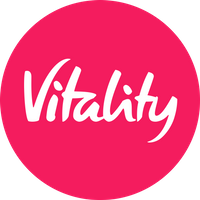Five home-use services that can improve employee healthcare
The term ‘digital health-tech’ might conjure up images of wearables and smartphone apps, which have been empowering people to manage their health and wellbeing for years.
Less widely known, though, are the range of medical treatments and healthcare services available from home and being harnessed to improve patient care.
According to NHS practitioner Dr Kiran Johal, these services are “checked to ensure safety, data protection and accessibility to be used within a health and social care setting”.
Care in the comfort of one’s home can often be more accessible and convenient. Here are five ways digital technology is making it quicker and easier for those insured on a group private medical scheme to get access to treatment.
1. Access to a GP
Covid-19 brought a watershed moment that meant we all had to adapt to a more digital approach to everyday services. Vitality introduced access to care through its Vitality GP service a year before the pandemic.
Between 2019 and 2021, Vitality reported a 70% increase in use of the remote GP service and more than 40% of health insurance claims were for primary care, which can include doctors’ appointments, prescriptions as well as dental and optometry (eye health) services.
Having a virtual GP appointment also means staff can often receive an immediate decision for further care when required.
2. Skin cancer prevention
Skin cancer was the second most common type of cancer claim for Vitality members in 20213.
While measures can be taken to prevent a skin cancer, if an employee is worried about a mole or blemish, services like Skin Analytics use artificial intelligence (AI) to identify whether it is something they should be concerned about.
Staff can simply book a virtual appointment through an app and and receive an analysis kit in the post. This contains a smartphone and dermoscopic (magnifying) lens, which takes high-definition photos of the skin. These images will be analysed by a skin professional – a dermatologist – within 24 hours.
3. Digital physiotherapy
Virtual physiotherapy offers an alternative way for employees to get support from a physiotherapist without the need for face-to-face visits.
Treating a wide range of conditions from back and joint pain to sports injuries, the goal is to relieve symptoms. While this is traditionally done in person, a 2020 study found that digital treatment can be just as effective as in-person treatment.
The physiotherapists take a holistic approach to recovery and assess the individual’s situation and provide personalised treatment, such as exercises to relieve pain and discomfort.
4. Online therapy
Mental ill-health is a growing challenge for the UK. One in 10 people say that they experience symptoms of anxiety or depression, and one in five admitted to struggling with burnout.
Talking therapies – a service which has risen in demand fivefold since 20155 – provides a variety of therapies, including counselling, cognitive behavioural therapy to guided self-help.
Employees with a qualifying health insurance plan can access eight online or face-to-face talking therapy sessions per plan year.
Online therapy gives staff a quick and simple way to access licensed therapists and psychotherapists, without the need to have to travel to appointments.
5. Holistic cancer support
Healthcare technology is also evolving to better support the holistic wellbeing of an individual when they are undergoing treatment for cancer, to aid recovery and help lower the chances of it reoccurring – also known as ‘prehab’.
One example is Alvie Health, a cancer support app that provides a combination of nutritional tips, physiotherapy, specialist nurses and mental health support.
“We create a 360-degree profile of each individual of their holistic health to understand where the health impairments are and then provide targeted interventions,” says Krishna Moorthy, cancer surgeon and founder of Alvie Health (formerly OnkoHealth).
“A personal health coach takes patients through a behaviour change programme to sustain areas such as their physical activity, nutrition and mental health during their cancer treatment to improve the chances of a positive outcome.”
After the programme, individuals can still connect with experts through group-based exercises and events for ongoing support.
Find out more about how Vitality can support the health needs of your business.
Supplied by REBA Associate Member, Vitality
At Vitality, we take a unique approach to insurance. As well as providing high-quality comprehensive cover, we provide a complete wellness package that can help boost employee engagement and productivity.








